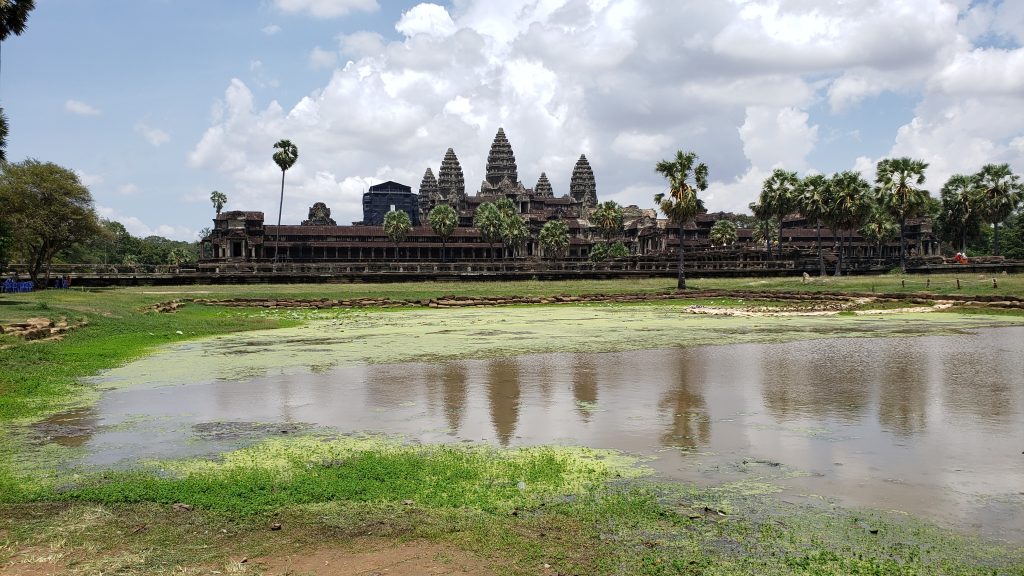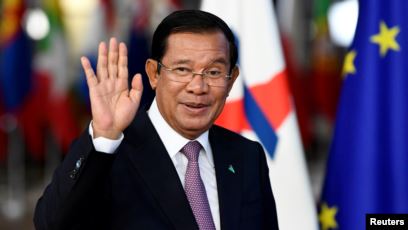Earlier this year, Cambodia marked the 40th anniversary of the collapse of the Khmer Rouge and the end of the genocide that left an estimated 1.5 to 2 million people dead and countless Cambodians displaced. It made sense then for the largest academic group dedicated to the study of genocide, the International Association of Genocide Scholars (IAGS), to host its biannual conference in Cambodia’s capital, Phnom Penh, this past July. The conference would provide an opportunity for the country to demonstrate its resiliency and give attendees (myself included) a chance to see the lingering effects of mass violence in a place where its impacts are still clearly visible and permeate nearly every aspect of society.

On its surface, Cambodia appears to be rapidly improving. I spent two days in Siem Reap, the gateway to the famed Angkor Wat complex, before heading to Phnom Penh for the conference. The city boasted a lively marketplace, plenty of Western-friendly shops and restaurants, and a seemingly booming construction business. Phnom Penh was largely the same. Neon lights illuminated the night skies, and KFC restaurants dotted the streets. Although fewer in number than in Siem Reap, college aged backpackers weren’t uncommon in the capital city. I had seen enough travel shows in preparation for my trip to expect this. Anthony Bourdain remarked that his first trip to Cambodia was a terrible experience, owing largely to the lack of basic infrastructure, but just ten years later, he found the country had improved dramatically. Given that the conference was ten years later still, I had come expecting to see even more economic growth.
To some extent, that investment has come. Cambodia is the recipient of significant international investment; millions of dollars have come pouring in from China, Vietnam, the U.S., and elsewhere, promising jobs and much-needed infrastructure improvements. In theory, it should be a great time to be in Cambodia: its economy is one of the fastest-growing in Southeast Asia, and its human development index score has nearly doubled since the fall of the Khmer Rouge. But scratch beneath the surface a little, and it’s not all that it appears to be. While life in Cambodia is comfortable if you’re an urban elite, the economic boom has mostly left the rural Cambodians behind. The foreign investment has come with serious strings attached. Rumors have spread that a Vietnamese company is now controlling Angkor Wat and sending profits out of Cambodia, an agreement that would give oversight of the country’s most precious cultural treasure to a foreign company. Many of the new hotels that promised foreign tourists to the country sit mostly empty, and the ones that are open limit the accessibility for Cambodian merchants to interact with tourists. The Cambodians I talked to see this boom as largely a bust for them.
To rural Cambodians, the blame can primarily be placed at the feet of the government. Although public dissent is met with swift retaliation from the government, privately, the Cambodians I encountered were more than willing to share their frustrations with the ruling Cambodian People’s Party. The political party has dominated the country’s political landscape for decades and has functionally ruled Cambodia as an authoritarian single-party state since elections in late 2017. Before the genocide, the Cambodian People’s Party had been a communist party, formed to combat French colonial authority. A split with Pol Pot in the 1970s led to the rise of the Khmer Rouge and ultimately, genocide. Today, many of the party’s leaders were formerly connected to the Khmer Rouge. Prime Minister Hun Sen was battalion commander under the Khmer Rouge who fled to Vietnam during one of the purges under the regime.
A standard critique of the Extraordinary Chambers in the Courts of Cambodia (the tribunal system established to bring the leaders of the Khmer Rouge to justice) is its narrow scope. Only five trials were scheduled, and only four were held. It wasn’t until I traveled to Cambodia that I realized how valid this particular criticism is. Traveling through a country with the pains of genocide still so clear, led by an authoritarian Prime Minister with a direct connection to the perpetrators of genocide, I can help but wonder: is this what resiliency and progress are really meant to look like?
Joe Eggers is the Research & Outreach Coordinator for the Center for Holocaust & Genocide Studies.


Comments